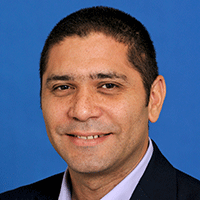
Orlando Ayala, Associate Professor, Engineering Technology, Old Dominion University
Dr. Ayala received his BS in Mechanical Engineering with honors (Cum Laude) from Universidad de Oriente (Venezuela) in 1995, MS in 2001 and PhD in 2005, both from University of Delaware (USA). Dr. Ayala is currently serving as Associate Professor in the Engineering Technology Department at Old Dominion University. Prior to joining ODU in 2013, Dr. Ayala spent 3 years as a Postdoc at the University of Delaware where he expanded his knowledge on simulation of multiphase flows while acquiring skills in high-performance parallel computing and scientific computation. Before that, Dr. Ayala held a faculty position at Universidad de Oriente where he taught and developed courses for a number of subjects such as Fluid Mechanics, Heat Transfer, Thermodynamics, Multiphase Flows, Hydraulic Machinery, as well as different Laboratory courses. Additionally, Dr. Ayala has had the opportunity to work for a number of engineering consulting companies, which have given him an important perspective and exposure to the industry. He has been directly involved in at least 20 different engineering projects related to a wide range of industries. Dr. Ayala has provided service to professional organizations such as ASME, since 2008 he has been a member of the Committee of Spanish Translation of ASME Codes. Dr. Ayala has published over one hundred journal and peer-reviewed conference papers. His work has been presented in several international forums in Austria, the USA, Venezuela, Japan, France, Mexico, and Argentina. Dr. Ayala has an average citation per year of all his published work of 42.80.
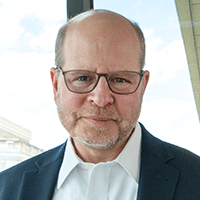
Jonathan Cagan, David and Susan Coulter Head of Mechanical Engineering, Carnegie Mellon University
Jonathan Cagan is the David and Susan Coulter Head of Mechanical Engineering and George Tallman and Florence Barrett Ladd Professor at Carnegie Mellon University, with an appointment in Design. Cagan also served as Interim Dean of the College of Engineering and Special Advisor to the Provost. Cagan co-founded the Integrated Innovation Institute for interdisciplinary design education at CMU, bringing engineering, design and business together to create new products and services. Cagan's research focuses on design automation and methods, problem solving, and medical technologies. His work merges AI, machine learning, and optimization methods with cognitive science problem solving. A Fellow of the American Society of Mechanical Engineers, Cagan has been awarded the ASME Design Theory and Methodology, Design Automation, and Ruth and Joel Spira Outstanding Design Educator Awards. A registered Professional Engineer, Cagan received his PhD from UC Berkeley, and has been on the faculty at CMU since 1990.
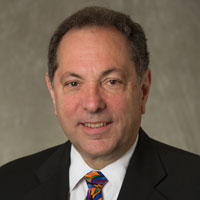
Thomas Costabile, P.E., Executive Director/CEO, ASME
Tom Costabile stands at the forefront of innovation and today's industry developments. He has spent the last five-years working to establish ASME as a global leader in the mechanical engineering space while promoting the technical and societal contributions of engineers. He is responsible for guiding ASME's organizational programs in code and standards development, membership, conferences, technical publishing, education, professional development, and public policy. Most recently, Tom has led a merger between ASME and Techstreet to foster opportunities for ASME to incubate new industry events into revenue generating engines. Also under his leadership, ASME announced a new subsidiary, Metrix Connect LLC, to accelerate digital transformation in engineering for a variety of industries. Tom is a licensed professional mechanical engineer and began his career in the nuclear power industry before serving as senior vice president of operations for SONY Music where he led the development of the company's compact disc and distribution operations. He earned his MBA with honors in Finance from Long Island University and a degree in Mechanical Engineering from Manhattan College.
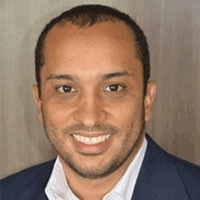
David DeSousa, Jr., Associate Director, Engineering Academy Program, Texas A&M University
David De Sousa, Jr. has over 22 years of higher education experience with roles in the field of higher education administration, agriculture and international programs. He has held several positions at Texas A&M University in the Office of Admissions, Public Policy Research Institute, Evans Library, College of Agriculture and Life Sciences, Qatar Support Office and Halliburton Global Programs Office. He now serves as the Associate Director for the Engineering Academies at Texas A&M University. It’s his privilege to work with students and guide them in making decisions that impact their future
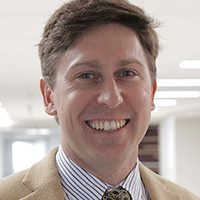
Timothy Jacobs, Head, Department of Multidisciplinary Engineering, Texas A&M University
Timothy Jacobs is professor and founding department head of the Department of Multidisciplinary Engineering at Texas A&M University. Prior to his current appointment Dr. Jacobs served as Director of Interdisciplinary Engineering for Undergraduate and Graduate Studies. He successfully shepherded the formation of and transition of all engineering interdisciplinary programs to the Department of Multidisciplinary Engineering in Fall 2020. Dr. Jacobs built the Bachelor of Science in Interdisciplinary Engineering, along with developing the Bachelor of Science in Architectural Engineering, Cybersecurity Engineering, Engineering Medicine, and several other interdisciplinary programs. Dr. Jacobs supports a broad and diverse multidisciplinary faculty with research interests ranging from engineering education to subsea engineering to project management to engineering law. Dr. Jacobs also holds a faculty position in the J. Mike Walker Department of Mechanical Engineering at Texas A&M University. He received his PhD, MS, and BS degrees, all in mechanical engineering, from University of Michigan. Dr. Jacobs received elevation to the grade of Fellow in ASME in 2018.
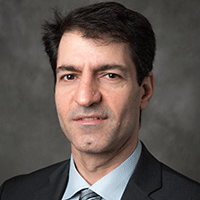
Nader Jalili, Dean, Lyle School of Engineering (as of March 2023), Southern Methodist University (SMU) and former ME Department Head at University of Alabama
Nader Jalili joined Southern Methodist University (SMU) as its next dean of Lyle School of Engineering on March 2023. He was formerly professor and head of mechanical engineering department at the University of Alabama (UA) since 2018. Prior to his department headship at UA, Dr. Jalili was a Professor of Mechanical Engineering, Associate Department Chair for Graduate Studies and Research, and Director of Northeastern University Piezoactive Systems Laboratory at Northeastern University (Boston, Massachusetts). An ASME Fellow, Dr. Jalili is the current Chair (2022‐2023), past Vice‐Chair (2021‐2022) and past Secretary (2020‐2021) of ASME Mechanical Engineering Department Heads and Chairs (MEDHC); current Chair (2019‐present) and past Vice‐Chair (2018‐2019) of ASME Southeast Mechanical Engineering Department Heads (SMEDH). He is currently the Dynamics and Control Systems Subject Editor of International Journal of Mechatronics and Manufacturing Systems and Associate Technical Editor of Journal of Vibration and Control. He was the Founding Chair of ASME Dynamic Systems and Control Division Technical Committee on Vibration and Control of Smart Structures. He was also the past Associate Editors of ASME Journal of Vibration and Acoustics (2014‐2017), ASME Journal of Dynamic Systems, Measurement and Control (2006‐2012) as well as a past Technical Editor of IEEE/ASME Transactions on Mechatronics from 2005 to 2009.
Jalili is an innovative leader and researcher, known for bringing the resources of engineering education and research to undergraduate and graduate students, industry partners and community outreach programs.
Dr. Jalili has been PI or Co-PI on more than $17 million in external funding, including grants from the National Science Foundation, the U.S. Department of Energy and the U.S. Department of Defense in the domain of vibration, control and robotic-based manufacturing (He is the author/co‐author of more than 350 peer‐refereed technical publications; including 135 journal papers, 2 textbooks and 5 book chapters. He was the former Director of Alabama IMaDE®, and led new paradigms in education and workforce development centered around a novel educational facility that enables hands-on project-based learning in robotic manufacturing and a workforce accelerator program that aimed to bring the teaching modalities of colleges, workforce training, and companies into a singular ecosystem to allow both degree path and non-degree path students/workers to engage in competency-based educations catered to those seeking careers in industry.
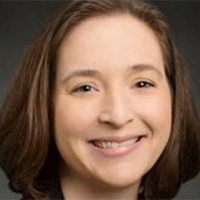
Karin Jensen, Assistant Professor, Biomedical Engineering & Engineering Education Research, University of Michigan
Karin Jensen, Ph.D. (she/her) is an assistant professor in Biomedical Engineering and Engineering Education Research at the University of Michigan. Her research interests include student mental health and wellness, engineering student career pathways, and engagement of engineering faculty in engineering education research. She was awarded a CAREER award from the National Science Foundation for her research on undergraduate mental health in engineering programs. Jensen is also a member of the ASEE Commission on Diversity, Equity, and Inclusion. She is currently an associate editor for the Journal of Women and Minorities in Science and Engineering. She earned a bachelor’s degree in biological engineering from Cornell University and a Ph.D. in biomedical engineering from the University of Virginia.
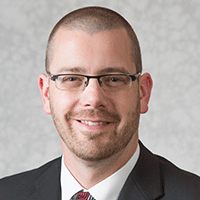
Ryan Krauss, Chair, Interdisciplinary Engineering, Grand Valley State University
Dr. Ryan Krauss is the chair of the interdisciplinary engineering (IE) program at Grand Valley State University (GVSU) in Grand Rapids, MI. The IE program at GVSU offers a very flexible BSE program with optional emphases in mechatronics, alternative energy, environmental engineering, or engineering management. Additionally, IE oversees the engineering foundations courses, mandatory co-op, and senior project which are common to all engineering programs at GVSU. Dr. Krauss is interested in many areas of pedagogical research. His technical interests are in the areas of feedback control, dynamic systems, mechatronics, and robotics. He earned his Ph.D. from Georgia Tech in mechanical engineering in 2006.
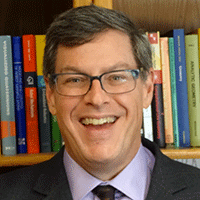
Pierre Larochelle, Head, Mechanical Engineering, South Dakota School of Mines & Technology
Pierre Larochelle serves as Department Head and Professor of Mechanical Engineering at the South Dakota School of Mines & Technology. Previously, he served as an Associate Dean and Professor of Mechanical Engineering at the Florida Institute of Technology. His research focuses on the design of complex robotic mechanical systems and enabling creativity and innovation in design. He is the founding director of the RObotics and Computational Kinematics INnovation (ROCKIN) Laboratory, has over 100 publications, holds three US patents, and serves as a consultant on robotics, automation, machine design, creativity & innovation, and computer-aided design. In 2012, at NASA’s request, he created a 3-day short course on Creativity & Innovation. This course has been very well received, and he has taught it exclusively more than 30 times at NASA’s various centers and laboratories across the nation to more than 600 of NASA’s scientists and engineers. He currently serves as the Chair of the U.S. Committee on the Theory of Mechanisms & Machine Science and represents the U.S. in the International Federation for the Promotion of Mechanism & Machine Science (IFToMM) (2016-22). He serves as a founding Associate Editor for the ASME Journal of Autonomous Vehicles and Systems (2020-23). Moreover, he serves on the Executive Committees of ASME’s Department Heads Committee and of ABET’s Engineering Accreditation Commission (EAC). He serves as an ABET Accreditation Visit Team Chair. He has served as Chair of the ASME Design Engineering Division (2018-2019) and the ASME Mechanisms & Robotics Committee (2010-2014), and as an Associate Editor for the ASME Journal of Mechanisms & Robotics (2013-19), the ASME Journal of Mechanical Design (2005-11), and for Mechanics Based Design of Structures & Machines (2006-13). He is a Fellow of the American Society of Mechanical Engineers (ASME), a Senior Member of IEEE, and a member of Tau Beta Pi, Pi Tau Sigma, ASEE, and the Order of the Engineer.
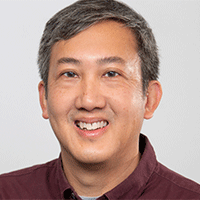
Christopher Lee, Professor, Mechanical Engineering, Olin College of Engineering
Dr. Christopher Lee is a Professor of Mechanical Engineering at Olin College of Engineering where he is active in curriculum development and conducts research with students in several areas including small satellite systems, 3D printing for medical applications, adaptive soft structures, and vibration energy harvesting. He has been the chair the ME Program Group (Olin does not have departments) for 10 years and has recently been involved in a redesign of the curriculum for the ME major. Before joining Olin in 2006, Dr. Lee was an engineer at Lawrence Livermore National Laboratory for 12 years. He received degrees from the University of Michigan (PhD, MS) and Cornell University (BS).
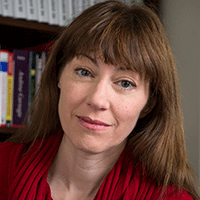
Marsha C. Lovett, Vice Provost for Teaching and Learning Innovation and Director of the Eberly Center for Teaching Excellence & Educational Innovation, Carnegie Mellon University
Marsha C. Lovett is Vice Provost for Teaching & Learning Innovation at Carnegie Mellon University (CMU). In addition, she is Director of CMU's Eberly Center for Teaching Excellence & Educational Innovation and Teaching Professor in the Psychology Department. Lovett leads a team of teaching consultants, learning engineers, designers, data scientists, and technologists to help instructors create meaningful and demonstrably effective educational experiences. In her research, Lovett has published articles on learning and instructional interventions, both in the laboratory and classrooms. Lovett has also created several innovative, educational technologies to promote student learning and metacognition, including StatTutor and the Learning Dashboard, and she has developed and/or evaluated online courses in the sciences, social sciences, and humanities. A signature of her work is leveraging research-based design and data-informed iteration to enhance teaching practices and student outcomes.
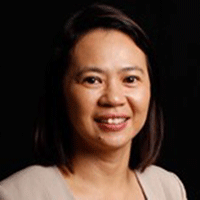
Hong Yee Low, Associate Professor & Head, Pillar Engineering Product Development, Singapore University of Technology and Design
Dr. Hong Yee Low, Head of Pillar "Engineering Product Development" (EPD), Associate Professor (EPD), Co-Advisor for Dyson SUTD Innovation Studio & Director of the Digital Manufacturing and Design Centre (DManD). Singapore University of Technology and Design. She received her PhD from the Macromolecular Science and Engineering department of Case Western Reserve University in 1998. After 2 years at Motorola Semiconductor Sector, she joined the Institute of Materials Research and Engineering (IMRE), Agency for Science Technology and Research, Singapore for 13 years. In IMRE she spearheaded nanoimprinting research, was the founding group head of Patterning and Fabrication Capability Group and served as the Director of Research and Innovation. She is currently an Associate Professor in the Engineering Product Development Pillar (EPD) at the Singapore University of Technology and Design (SUTD), and she holds three appointments as the Head of Pillar, Co-Advisor of Dyson SUTD Innovation Studio, and Deputy Director of Centre for Healthcare Education, Entrepreneurship and Research @ SUTD (CHEERS). Hong Yee has co-authored >150 peer reviewed publications and is a co-inventor of ~30 granted patents.
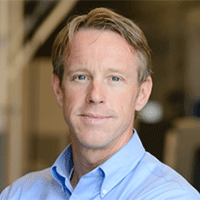
Laine Mears, BMW Chair, Automotive Engineering & Director, THINKER Program, Clemson University
Laine Mears, Ph.D., P.E. has been a faculty member in Clemson's Automotive Engineering department since 2006. He teaches modeling and analysis of automotive manufacturing processes and automation integration in manufacturing. He has performed research in Intelligent Machining Systems, manufacturing process control and manufacturing equipment diagnostics. His work is supported by the National Science Foundation, National Institute of Standards Technology, U.S. Dept. of Energy through the National Center for Manufacturing Sciences, and through numerous industry partners. Dr. Mears worked 10 years in industry with automotive and bearing manufacturers in Engineer, Manager, and Product Launch Coordinator roles. He has a B.S. in mechanical engineering from Virginia Tech and M.S. and Ph.D. degrees in mechanical engineering from Georgia Tech. He now chairs the only Automotive Engineering department in the US.
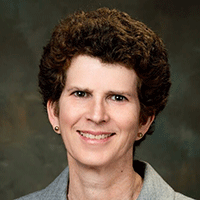
Michele Miller, Professor and Associate Dean of Engineering, Campbell University
Michele Miller is Professor and Associate Dean of Engineering at Campbell University. She is the current Chair of ASME’s Committee on Engineering Education. Prior to joining Campbell in 2017, she was a mechanical engineering professor at Michigan Tech for 22 years. She has been an advocate for project-based curricula and has served ABET as a program evaluator and team chair. She teaches classes on manufacturing and mechanics. She has performed research in engineering education, micro-electromechanical systems, and precision machining. She received a BS degree from Duke University and MS and PhD degrees from North Carolina State University, all in mechanical engineering.
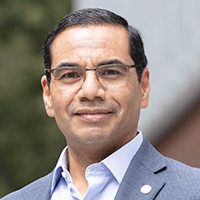
José Carlos Miranda-Valenzuela, Dean, Engineering and Sciences, Tecnológico de Monterrey, (Mexico)
José Carlos Miranda-Valenzuela holds a BS and MSc in Mechanical Engineering from Tecnológico de Monterrey and a Ph.D. in Computational Mechanics from the University of Wales in the United Kingdom. His research interests are Engineering Education, Robust Design, and combining the Design of Experiments and Machine Learning to optimize products and processes. He has collaborated on projects and taught courses for automotive companies like Robert Bosch, FCA, Daimler, Delphi, Ford, General Motors, Inteva, and Siemens VDO, among others. He is an active member and ex-president of the Sociedad de Ingenieros Automotrices de México, A.C., a national section of SAE International. He works for Tecnologico de Monterrey as Dean of the School of Engineering and Sciences for the Mexico City Region.
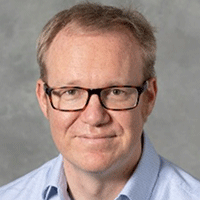
John E. Mitchell, Professor, Communications Systems Engineering, University College London, UK
Dr. John E. Mitchell is Professor of Communications Systems Engineering in the UCL Department of Electronic and Electrical Engineering and Co-director of the UCL Centre for Engineering Education. Between 2012 and 2016 he was on secondment to the UCL Engineering Sciences Faculty office, where he led the introduction of the Integrated Engineering Programme. The team that led this major revision of the curriculum across the engineering faculty was awarded the HEA Collaborative Award for Teaching Excellence (CATE).
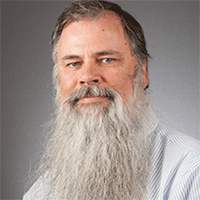
Jim Morgan, Director, Engineering, Charles Sturt University (Australia)
Professor Jim Morgan is the Director of CSU Engineering and moved to Bathurst to join the Charles Sturt Engineering team in April 2015 as the Inaugural Course Director. He moved to Australia after more than 30 years at Texas A&M University, USA where in addition to his teaching in engineering, Jim served several years as the Director of Aggie STEM, and previously as Co-Director of the Eisenhower Leadership Development Program in the Centre for Public Leadership at the George Bush School of Government and Public Service.
His research includes highway safety, structural dynamics, earthquake engineering and engineering education. Jim has enjoyed putting 25+ years of research in engineering education into practice as he helped to establish a truly unique civil engineering program and looks forward to a bright future as our program evolves to meet the challenges faced by Australia and the world.
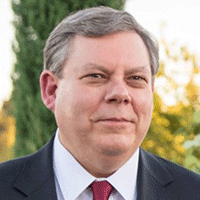
Karim H. Muci-Kuchler, Professor and Mechanical Engineering Academic Program Coordinator, Ingram School of Engineering, Texas State University
Dr. Karim Muci-Kuchler is a Professor and Mechanical Engineering Academic Program Coordinator at the Ingram School of Engineering of Texas State University. Before joining Texas State University, he was a Professor of Mechanical Engineering and Director of the Experimental and Computational Mechanics Laboratory at the South Dakota School of Mines and Technology. He received his Ph.D. in Engineering Mechanics from Iowa State University in 1992. He has taught a wide variety of undergraduate and graduate engineering courses and his main interest areas include Engineering Education, Computational Mechanics, Product Design and Development, and Solid Mechanics. Dr. Muci-Kuchler is a Fellow of the American Society of Mechanical Engineers, co-author of a book about Adaptive Meshing with Boundary Elements, and author or co-author of over 85 publications. The later include papers related to engineering education, the boundary element method, the friction stir spot welding process, and surrogate perforating projectile wounds, among others. He has served as session chair or co-chair at international conferences, has reviewed papers for technical journals and conference proceedings, has served as panelist for the National Science Foundation (NSF), and has done consulting for industry in Mexico and the US.
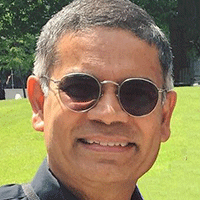
Rungun Nathan, Professor and Program Chair for the Mechanical Engineering Department, Penn State Berks
Rungun Nathan, a professor and program chair for the mechanical engineering department, joined the faculty at Penn State Berks in 2007 as an assistant professor and was promoted in 2012 to associate professor. He has over 25 combined years of increasing responsibilities in industry and in academia, including at the Centre for Development of Telematics (C-DOT), a telecommunications technology arm of the Indian government, the Indian Institute of Science (IISc.), Bangalore, and Villanova University, PA.
Nathan received his BS from the University of Mysore, a postgraduate diploma from the Indian Institute of Science, an MS from Louisiana State University, and a PhD from Drexel University. He worked in electronic packaging in C-DOT and then as a scientific assistant in the robotics laboratory at IISc. in Bangalore, India, and as a postdoc at the University of Pennsylvania in haptics and virtual reality. His research interests are in the areas of brain traumatic injury, unmanned vehicles, particularly flapping flight and Frisbees, mechatronics, robotics, MEMS, virtual reality, and haptics, as well as teaching with technology. He has ongoing research in brain traumatic injury, flapping flight, frisbee flight dynamics, lift in porous material, and wound therapy. He is an active member of APS (DFD), ASEE, ASME, and AGMA, and is a reviewer for several ASME, IEEE, ASEE, and FIE conferences and journals. He is co-editor for ASEE publication Computers in Education.
Nathan has been a very active member of both the Mechanics and Mechanical Engineering Divisions of ASEE since 2006. He started as a member at large and then rose to chair the Mechanics Division in 2012–2013. He currently is chair of the Mechanical Engineering Division after starting as member at large in 2017. Nathan also has been an active member of ASEE’s Engineering Technology, Computers in Education, Educational Research Methods, Multidisciplinary Engineering, Experimentation and Laboratory-Oriented Studies, and Systems Engineering Divisions. He is currently nominated as a Program Evaluator for ABET. He has also served as one of the organizers for MEED since 2021.
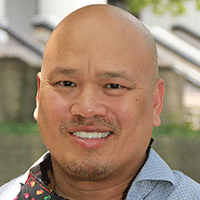
Khoi Nguyen, Head, Emerging Technologies, Texas State University
Dr. Khoi Nguyen earned his Ph.D. in Mechanical Engineering at the University of California, Irvine. He currently is the Head of Emerging Technologies at Texas State University and runs the newly established Alkek Laboratory for Immersive Arts and Sciences (ALIAS). Utilizing the $3m technology hub, ALIAS aims to develop through collaboration the largest collection of immersive stories and experiences in the United States. He is currently receiving the Unity Technologies Social Impact Grant for developing curriculum on XR education. He has given keynote speeches around the country on using XR technology in interdisciplinary education. Before coming to Texas State University, he was the chief architect developing the XR interactions for the National AIDS Memorial and the National AIDS Quilt. His current project deals with using XR and AI technology within our national cemeteries to honor those who have laid the foundations for our rights.
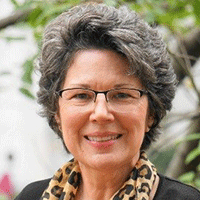
Mary K. Pilotte, Professor, Engineering Practice & Co-Director of the Fusion Studio for Entertainment & Engineering, Purdue University
Dr. Pilotte is a Professor of Engineering Practice and has served as Director of the School of Engineering Education’s Undergraduate degree programs in Interdisciplinary Engineering Studies and Multidisciplinary Engineering at Purdue University from 2014 to December 2022 . In 2020 she became the Co-Director of the Fusion Studio for Entertainment and Engineering, an education-based Center focused on highlighting best practices in education, innovation, and engineering-focused technologies at the interdisciplinary intersection of engineering and entertainment.
She instructs a variety of topics across levels of development, from professional skills to engineering economics and first-year engineering to Senior Capstone Design. Outside of the College of Engineering she frequently instructs project management and consulting approaches for Global and Executive MBA programs. Beyond the university setting, she leads corporate workshops on intentional learning and guides industrial problem solving surrounding issues associated with generational diversity in the workplace, based on her 2018 book, Millennial Reset.
Her research interests include engineering education focused topics. In particular engineering work culture including generations-based engineering practices and norms by engineering discipline. Additionally, her research has exposed the benefits of "engineering field work", experiential learning through content rich study abroad, and examining what it means to identify as "multidisciplinary" in educational settings and/or the workplace. Her work has been highlighted in a wide range of outlets such as the ASME digital collection, Frontiers in Education, Journal of Engineering Education, Siemens Innovation in the Classroom Podcast, and the Association of American Colleges and Universities Academic Minute Podcast.
Prior to her roles in academia, she worked professionally for more than 20 years in the automotive, aerospace, airline, and commercial products industries in engineering and non-engineering roles. She held a variety of increasing leadership roles, leading high performing teams in finance, manufacturing, customer service/IT and design-engineering for new product and process development. Ultimately, she held executive-level roles in plant management and finance, responsible for large salaried and hourly work groups, operationalizing efficient international JIT supply chains, and leading strategic merger and acquisition integration success.
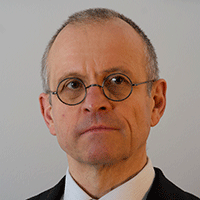
Professor of Mechanical Engineering; Director, Global CO2 Initiative; Faculty Director, Center for Entrepreneurship
For 30 years, Volker Sick developed laser spectroscopic imaging techniques to study fundamental and applied problems in combustion, heat transfer, and fluid mechanics. Fundamental insights of practical relevance were obtained from highly resolved measurements of transient phenomena such as heat transfer in boundary layer flows in engines and the origin of misfires due to interaction of turbulent flow, fuel injection, and spark discharges in direct injection engines. His optical techniques have since been advanced and his laboratory is now focused on diagnosis methods for bacterial and fungal infections of the human cornea. In 2018, he took on the leadership of the Global CO2 Initiative at the University of Michigan to promote CO2 capture and utilization as a mainstream carbon management solution to help address climate change. With a strong emphasis on social aspects, and globally harmonized systems-level life cycle and economic assessments his teaching focuses on experiential learning opportunities for students, which include research internships in his laboratory. Prof. Sick’s teaching connects classroom learning to applied experiences, spanning from undergraduate teaching laboratories in Mechanical Engineering to university-wide multi-disciplinary student team instruction in the College of Engineering's Center for Entrepreneurship and the International Engineering Summer School at TU Berlin.
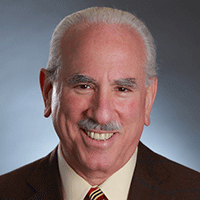
Joe Sussman, Chief Accreditation and Chief Information Officer, ABET
Dr. Joe Sussman is both Chief Accreditation Officer and Chief Information Officer for ABET, the recognized accreditor for college and university technical education programs in applied science, computing, engineering, and engineering technology worldwide. In this role since 2011, Dr. Sussman leads ABET's global accreditation operations, collaborating with the organization’s volunteer leadership in both tactical execution and strategic development of ABET’s accreditation practice.
Prior to joining ABET, Dr. Sussman spent 26 years as an engineering leader and senior business executive at Bayer AG, leading many of the company's quality, manufacturing, and IT efforts. After retiring from Bayer Joe became an Industry Specialist at Deloitte Consulting, where he worked with many prominent global clients.
In addition to his impressive industry background, and prior to joining ABET staff, Joe served ABET for 24 years in nearly every volunteer capacity, including:
- Program Evaluator for mechanical engineering programs,
- Chair of the Engineering Accreditation Commission,
- Representative Director from ASME on the ABET Board of Directors,
- ABET President for 2008-2009.
Dr. Sussman was inducted as an ABET Fellow in 2002 after having played a pivotal role in implementing the ground-breaking Engineering Criteria 2000. In 2011 the ASME Board of Governors elected Dr. Sussman an ASME Fellow for his contributions to quality in engineering education.
In 2015 Dr. Sussman was presented the Linton E. Grinter Distinguished Service Award as an ABET expert who followed in Grinter's footsteps, making outstanding contributions to the technical disciplines through his work in accreditation.
Dr. Sussman earned his baccalaureate, master's, and doctoral degrees in mechanical engineering from Columbia University in the City of New York.